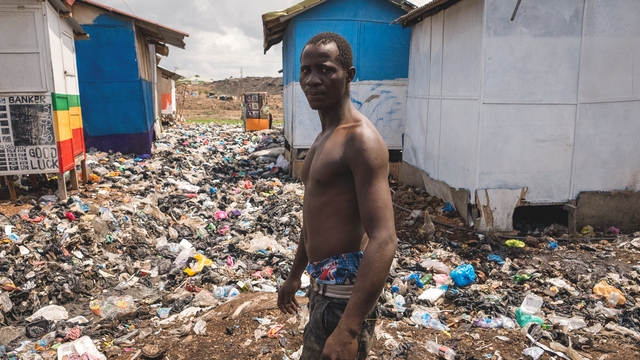Dead White Man’s Clothes
Second hand clothes creating toxic landfill in Ghana
 Fast fashion accounts for around 10% of global greenhouse emissions. Buying second hand is a way to reduce this impact. But what happens to the second hand clothes discarded by charity shops in the Global North?
Fast fashion accounts for around 10% of global greenhouse emissions. Buying second hand is a way to reduce this impact. But what happens to the second hand clothes discarded by charity shops in the Global North?
In Accra, Ghana, sales of second hand clothing have boomed in the last 20 years, creating tens of thousands of jobs in the process. Aisha is a head porter, who carries bales of clothing: 'I come from the north where there are few jobs, so I decided to migrate here and try to make some money to take care of my children back home'. However, this boom has also created many problems for the city. Solomon Noi, Accra's waste manager, laments: 'This place is serving as a dumping ground for textile waste, in the name of second-hand clothing'. Liz Ricketts, who documents the impact of clothing waste on Ghana, lays the lion's share of the blame on the brands producing the clothing: 'Waste is part of the business model of fashion. A lot of brands overproduce by up to 40 percent'.
FULL SYNOPSIS

